Could Switzerland soon disclose the financing system for political parties and campaigns? This is the aim of the popular initiative on transparency supported by the Swiss Social Democratic Party, the Swiss Green Party and the Conservative Democratic Party (BDP). This initiative reflects texts already adopted by Geneva, Ticino and Neuchâtel, and more recently, Fribourg and Schwyz. Under this new approach, parties would have to communicate their campaign accounts and declare the source of donations worth over 10,000 Swiss francs.
The current system does not allow access to the details of amounts spent in campaigns or for election purposes. “There is a complete lack of transparency,” says Georg Lutz, director of the Swiss Centre of Expertise in the Social Sciences. For this reason, Switzerland is regularly singled out by the Council of Europe’s Group of States Against Corruption (GRECO). “This group was originally set up to tackle corruption in Eastern European countries,” explains Andreas Ladner, director of the Swiss Graduate School of Public Administration.
In Switzerland politics is a private affair
As successive GRECO reports lament, “there are no restrictions on contributions” and “accounting documents of political parties are… never subject to publication”. Indeed, in Switzerland, where there is no law governing political parties, this activity remains a private affair. “The parties often take the form of small, or even very small, associations at cantonal and local level,” states GRECO. As a result, the party machinery at federal level tends to have very limited resources. The Federal Council judges that “legislation applicable to all actors across the political sphere would generate a considerable administrative task and significant costs”. At the beginning of May, the Political Institutions Committee of the Council of States decided to support a counter proposal to the initiative, raising the cap for non-anonymous contributions to 25,000 Swiss francs.
Those in favour of a law on transparency have their eye on right-wing parties, and particularly the Swiss People’s Party (SVP), whose high-impact campaigns on subjects ranging from the entry of Switzerland to the European Economic Area to the banning of minarets, regularly receive substantial financial support from their leaders, and not least from Christoph Blocher. “How much money do I invest in an election campaign; what proportion of this amount is made up of contributions and of personal resources? This is my own business,” Council of States candidate, Roger Köppel (ZH), told the press recently. Köppel considers that the “secrecy of voting and elections in Switzerland is essential for the rule of law and democracy”.
Transparency would impact donations
What problems are caused by this lack of transparency? The political scientists contacted by “Swiss Review” say it is above all a question of ethics. “A basic level of inequality already exists as interest groups do not all exert the same influence. So, at the very least, it would seem reasonable that the public should know who is financing what,” believes Lutz. In the researcher’s opinion, transparency could result in changes in the behaviour of major contributors – a concern for right-wing parties in particular – but it would at least make political intention clearer. “Because if legal entities are investing in campaigns, it’s obviously because they expect something in return,” he points out. “If the head of Ricola invests in a campaign, he doesn’t want the brand to be associated with a particular party, because he wants to sell to everyone,” says Ladner, for whom the source of significant contributions is in fact no great secret. He emphasises that there is a “tendency on the right towards personal investments, whereas left-wing parties tend to centralise contributions.”
However, money is no guarantee of campaign success, and the secret of power is the ability of a group to bring together majorities. As such, in 2011, the SVP spent over six times more per parliamentary seat than the Green Liberal party, who were amongst the key winners of the 2011 elections, according to a study by the Sotomo institute. An increase in transparency would perhaps lead to a reduction in resources. For some, the solution to this problem would be to turn to a State-financing system. But, as Andreas Ladner comments: “this idea is not well received by right-wing parties as taxes would have to be raised to finance it. The left-wing would be in favour, but not necessarily the voters.” The researcher points out that the cantons of Geneva and Ticino have legislation on transparency but do not appear to have a more peaceful political climate. Rather, well-financed populist parties are thriving.
The question of inequality between parties
The political scientist points out that the desire for greater transparency has come first and foremost from left-wing parties in Switzerland and at the European level from a coalition of parties that tend to have fewer resources at their disposal. “Do we have more corruption in Switzerland? Do other countries with such a system, like France and Germany, have any less, he says. “If there really is a problem, it is more that the imbalance of resources creates injustices as money enables the arguments put forward by a party rich in resources to be more widely diffused than those of the other parties.” So, what can be done? Ladner considers that “transparency could be presented as a campaign argument which could work in favour of those parties which choose to play this card, like the Green party”. He argues for practical and logistical support for small parties, “so they can make themselves better heard”.
Ever-more expensive elections?
These elections will be the costliest yet. “We hear this same statement at every election, but there is a lack of detailed data and the way expenses are expressed also depends on the methodology,” explains Andreas Ladner. In 2018, the agency Media Focus estimated the advertising costs for the federal campaigns at 55.5 million francs, an increase of 18.8 per cent compared to 2017. In 2015, the Selects study asked candidates how much they spent during their campaign. The answer was 29 million francs. The FDP spent the most, followed by the CVP, SVP and SP in that order. If the spending of national, cantonal and local parties as well as associations were to be factored in, this figure would be doubled. In 2015, close to 2.5 million francs in individual contributions for parties was declared as tax deductible in Geneva (50 million francs throughout Switzerland as a whole). These contributions were made by 3,200 donors in a canton where donations are capped at 10,000 francs. The same research highlighted that the amount spent per voter was comparable to the figures from elections in the USA.


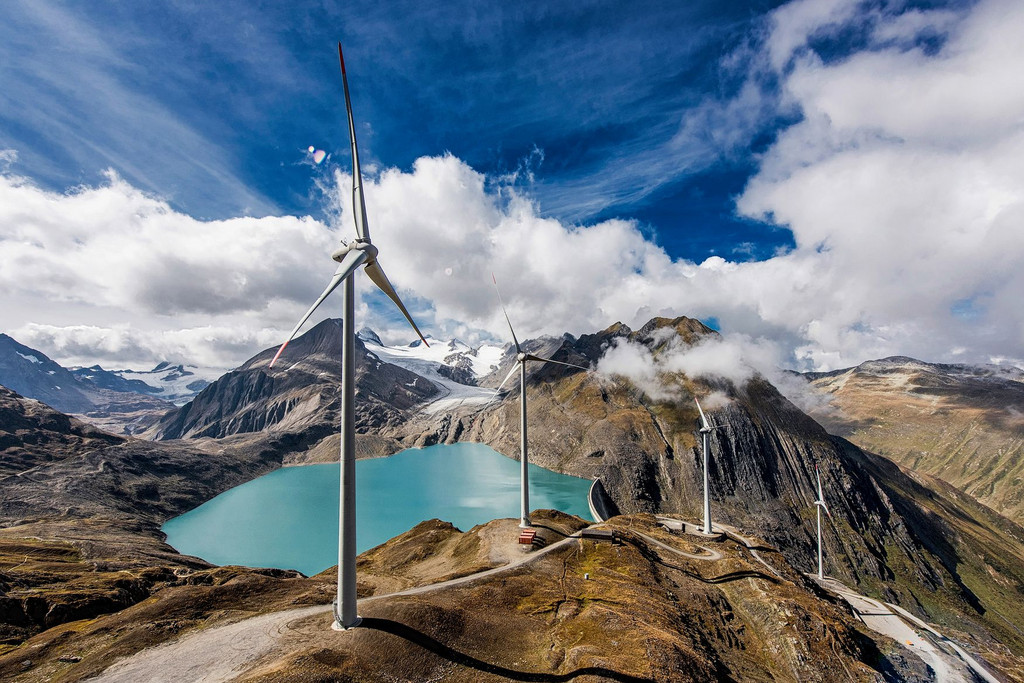
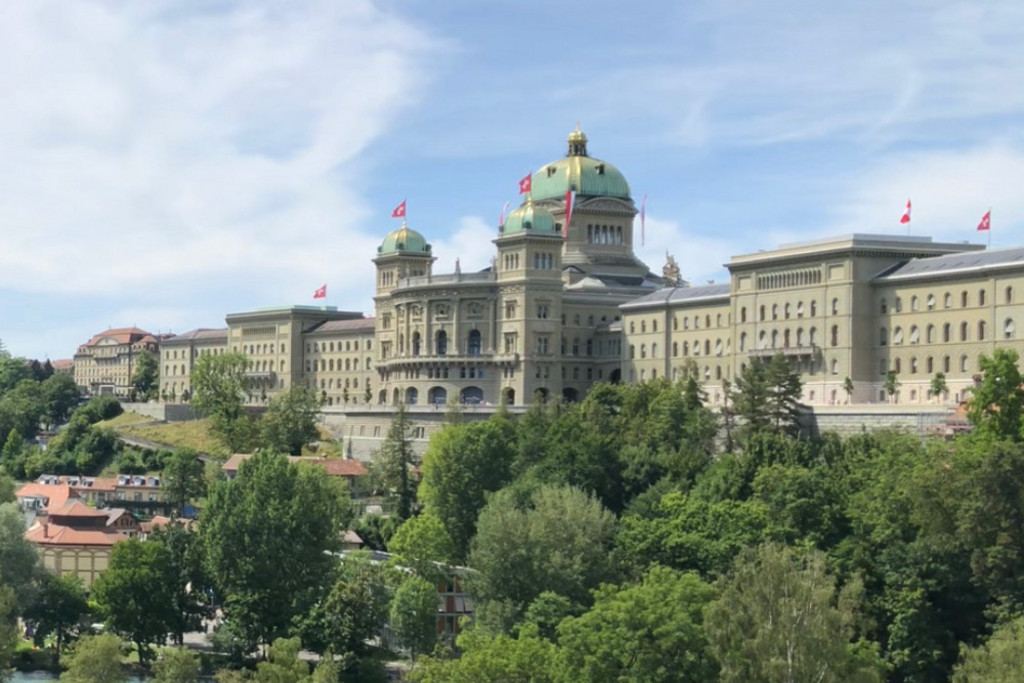
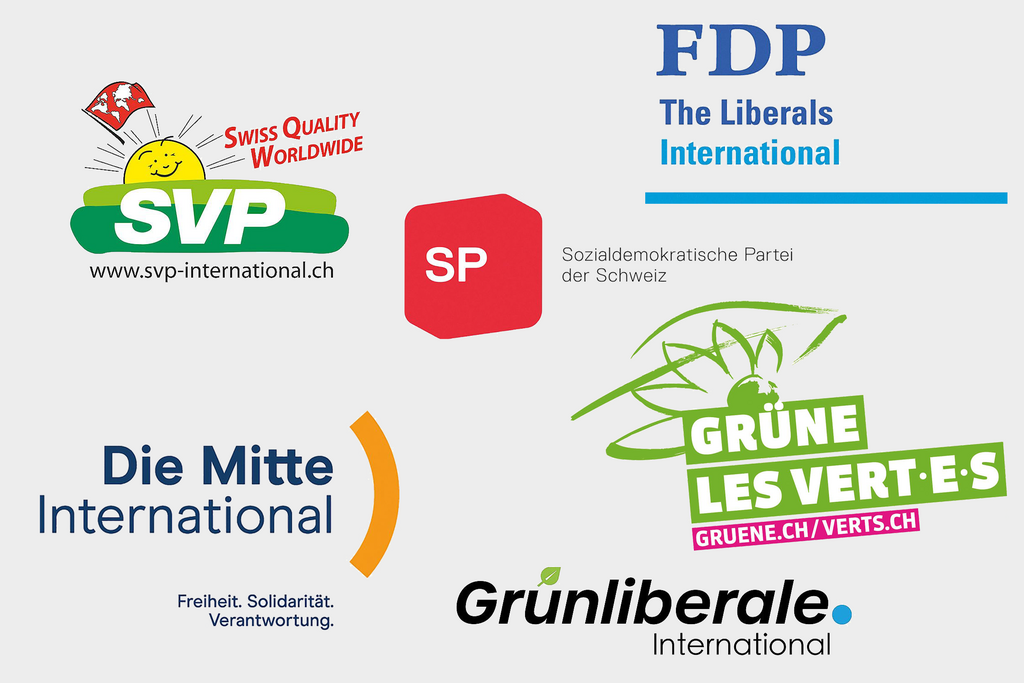
![[Translate to en:]](/fileadmin/_processed_/d/2/csm_Revue_202204_Huehnerfarm_SH-Reportage_3074_7901ca94df.jpg)
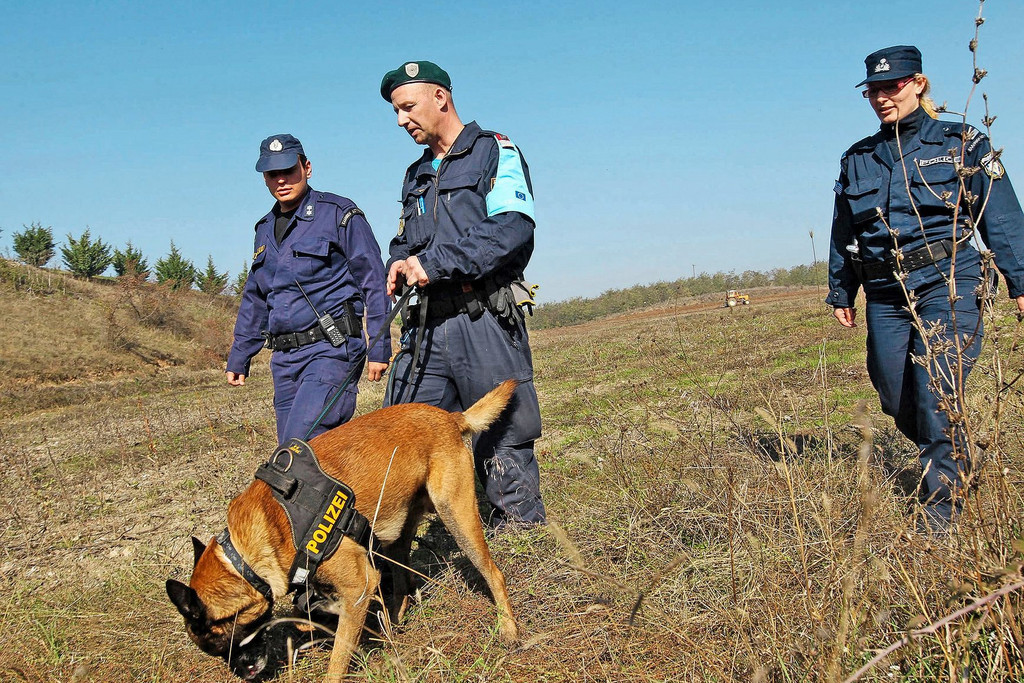


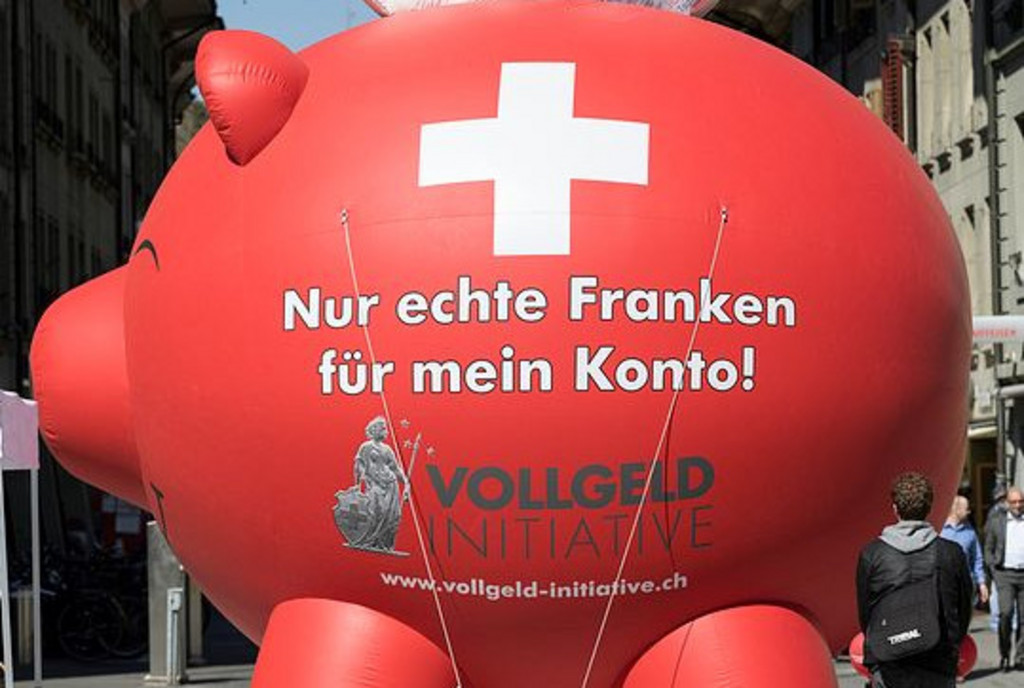
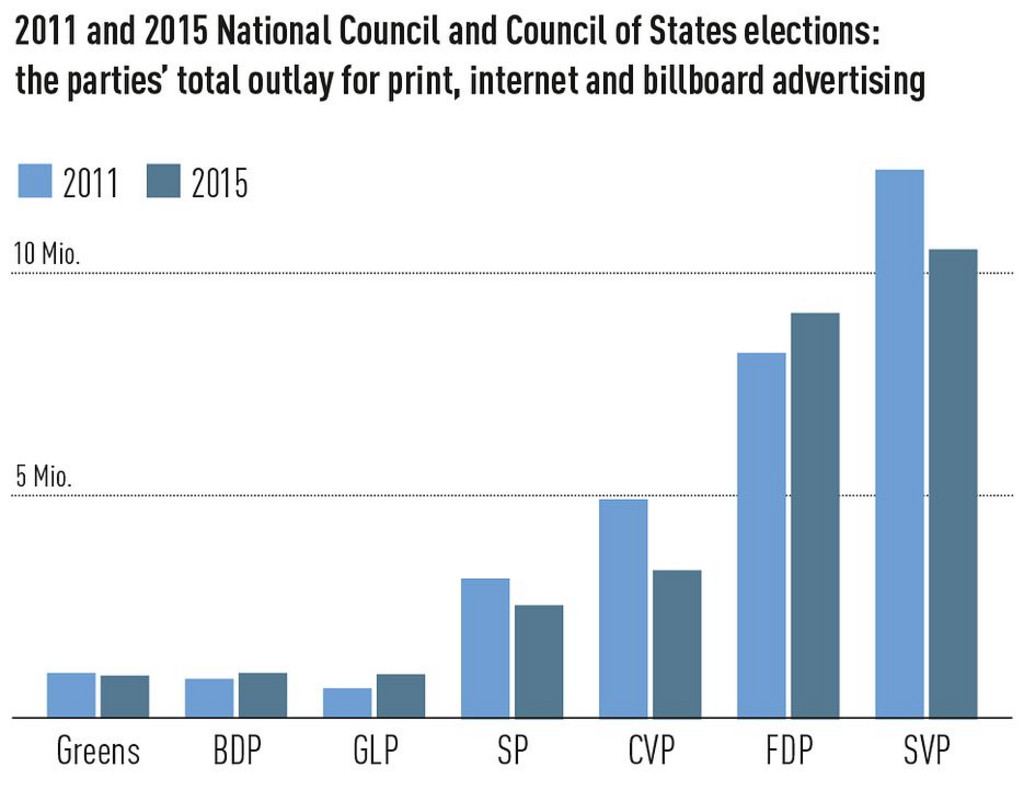
Comments